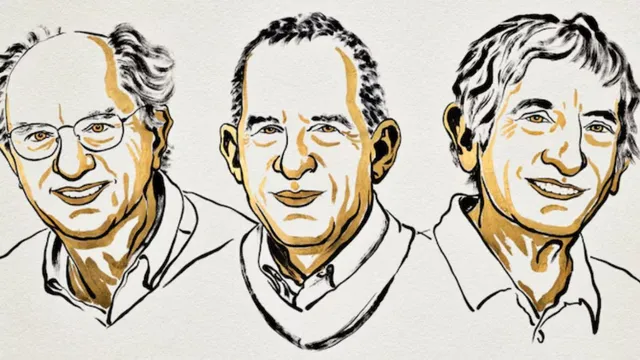- By Shivangi Sharma
- Tue, 07 Oct 2025 03:57 PM (IST)
- Source:JND
The 2025 Nobel Prize in Physics has been awarded to John Clarke of Britain, Michel Devoret of France, and John Martinis of the United States for pioneering work that reshaped understanding of quantum mechanics. The Nobel Committee in Stockholm announced Tuesday that the trio will share the honour “for the discovery of macroscopic quantum mechanical tunnelling and energy quantisation in an electric circuit.”
This marks the 119th time the Nobel Prize in Physics has been conferred. The award, announced Tuesday by the Nobel Committee in Stockholm, comes with a cash prize of 11 million Swedish kronor (about USD 1.2 million).
BREAKING NEWS
— The Nobel Prize (@NobelPrize) October 7, 2025
The Royal Swedish Academy of Sciences has decided to award the 2025 #NobelPrize in Physics to John Clarke, Michel H. Devoret and John M. Martinis “for the discovery of macroscopic quantum mechanical tunnelling and energy quantisation in an electric circuit.” pic.twitter.com/XkDUKWbHpz
The three laureates were recognised “for the discovery of macroscopic quantum mechanical tunnelling and energy quantisation in an electric circuit.” Their landmark experiments, carried out on a chip, revealed quantum physics in action on a scale previously thought unattainable.
One of the central questions in modern physics is how large a system can be while still displaying quantum mechanical effects. Such phenomena are confined to atoms and subatomic particles. The 2025 Nobel laureates defied that boundary, demonstrating both tunnelling and quantised energy levels in an electrical circuit large enough to be held in the hand.
From Zero Voltage To Quantum Leap
Initially trapped in a zero-voltage state, the system escaped via quantum tunnelling, a shift detected by the sudden appearance of voltage. Moreover, the system’s energy levels were quantised, absorbing and emitting energy in discrete amounts, in perfect accordance with quantum theory.
“It is wonderful to celebrate how century-old quantum mechanics continues to offer new surprises,” said Olle Eriksson, Chair of the Nobel Committee for Physics. “It is also enormously useful, as quantum mechanics is the foundation of all digital technology.”
Foundation For Quantum Technology
The collaboration between Clarke, Devoret, and Martinis was a fusion of British precision, French curiosity, and Californian pragmatism. Their superconducting circuits, sensitive to the slightest vibration or magnetic field, demonstrated that macroscopic systems could exhibit quantum behavior, producing voltage where none should exist. Their work laid the foundation for “artificial atoms” and superconducting qubits, essential elements of modern quantum computing.

